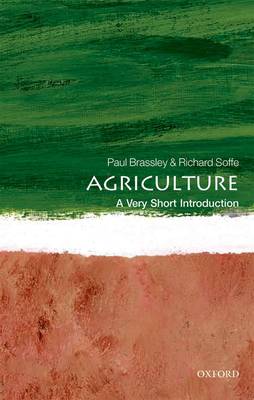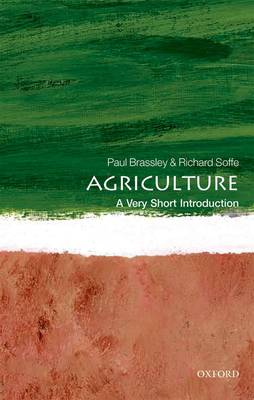
En raison d'une grêve chez bpost, votre commande pourrait être retardée. Vous avez besoin d’un livre rapidement ? Nos magasins vous accueillent à bras ouverts !
- Retrait gratuit dans votre magasin Club
- 7.000.000 titres dans notre catalogue
- Payer en toute sécurité
- Toujours un magasin près de chez vous
En raison de la grêve chez bpost, votre commande pourrait être retardée. Vous avez besoin d’un livre rapidement ? Nos magasins vous accueillent à bras ouverts !
- Retrait gratuit dans votre magasin Club
- 7.000.0000 titres dans notre catalogue
- Payer en toute sécurité
- Toujours un magasin près de chez vous
Description
Agriculture, one of the oldest human occupations, is practised all over the world, using techniques ranging from the profoundly traditional to the most scientifically advanced. Without it we would starve. Yet how many of us understand what is happening in the fields that we see as we drive through the countryside? How often do we think about the origins of the food in our trolley? In this Very Short Introduction Paul Brassley and Richard Soffe explain what farmers do and why they do it. Beginning with the most basic resource, the soil, they show why it is important, and how farmers can increase its productivity, before turning to the plants and animals that grow on it, and tracing the connections between their biology and the various ways in which farmers work with them. The authors conclude by looking at some of the controversial issues facing contemporary agriculture: its sustainability; its impact on wildlife and landscape; issues of animal welfare; and the affect of climate change and the development of genetically modified organisms on farmers. ABOUT THE SERIES: The Very Short Introductions series from Oxford University Press contains hundreds of titles in almost every subject area. These pocket-sized books are the perfect way to get ahead in a new subject quickly. Our expert authors combine facts, analysis, perspective, new ideas, and enthusiasm to make interesting and challenging topics highly readable.
Spécifications
Parties prenantes
- Auteur(s) :
- Editeur:
Contenu
- Nombre de pages :
- 160
- Langue:
- Anglais
- Collection :
Caractéristiques
- EAN:
- 9780198725961
- Date de parution :
- 01-07-16
- Format:
- Livre broché
- Format numérique:
- Trade paperback (VS)
- Dimensions :
- 109 mm x 170 mm
- Poids :
- 90 g

Les avis
Nous publions uniquement les avis qui respectent les conditions requises. Consultez nos conditions pour les avis.






